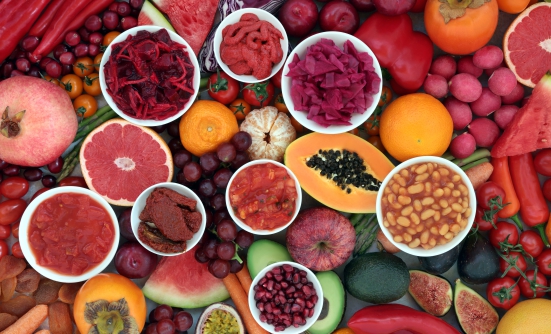When you are diagnosed with cancer, you are presented with a lot of new information, a change in lifestyle, and an abundance of opinions from friends and family members. It may be difficult to process everything, and you may feel a loss of control as you put your care in the hands of your cancer care team or a caregiver.
One aspect you can control is what you eat and how to nourish your body. Managing your nutrition can empower you during treatment, and can provide a sense of control and security in what can otherwise be an overwhelming and difficult time.
Cancer and its treatments can wreak havoc on one’s body, and it is difficult to prepare for this experience mentally and physically. By arming yourself with a healthy diet and mindset, you can optimize your healing potential, minimize the side effects of treatments, and improve your quality of life. A positive approach to eating can also encourage a positive outlook on your cancer journey.
Foods to Incorporate Into Your Diet
Although most of us are guilty of reaching for comfort food during difficult times, a nutrient-dense diet is essential to healing. Your daily diet should include plenty of phytonutrients, or plant nutrients. The more phytonutrients you can include in your meals, the better. Every meal should include a fruit, vegetable, or both if possible.
When filling your plate, try “eating the rainbow” to yield an appetizing meal with an abundance of phytonutrients that will nourish your body, such as:
- Add orange to your plate with carrots, sweet potatoes, and winter squash to provide beta-carotene
- Incorporate reds and pinks with tomatoes, watermelon, and grapefruit to provide lycopene
- Include foods with neutral colors, such as soy nuts or tofu, to provide isoflavones
- Add green with a variety of leafy greens and kiwi to provide lutein.
Foods to Avoid During or After Cancer Treatment
Many cancer treatments can have side effects that may not always allow you to eat your favorite foods.
Treatment side effects can include pain, nausea, vomiting, diarrhea, or a sore or dry mouth that may make it difficult to eat. Nausea is a common side effect of radiation and chemotherapy. Vomiting often follows nausea and can be triggered by treatment or by food smells. One or all of these side effects can lead to a disinterest in eating. If certain food tastes or smells result in side effects, they should be avoided. If someone is cooking for you, let them know which food tastes and smells make you nauseous, as well as which ones make you crave certain foods.
Whether you are currently receiving cancer treatment or have your treatment, you may have a weakened immune system and should avoid any food that is prone to food-borne illnesses, such as:
- Cold- or dry-cured meats
- Unpasteurized milk and milk products, such as soft cheese and yogurt
- Raw or smoked fish
- Unwashed fresh fruits and vegetables
- Undercooked eggs, such as soft-boiled, over-easy, and poached eggs
Speak with your cancer care team to decide when is the best time to incorporate these foods back into your diet after treatment.
Managing a Poor Appetite
Some patients with cancer struggle with a poor appetite or with weight loss as a result of treatment side effects, stress, and/or poor mental health. Not managing your nutrition and weight loss can lead to poor health outcomes. To get the calories and nutrients you need for adequate healing, try incorporating the following strategies into your daily routine:
- Eat a small, high-calorie, high-protein snack every 2 to 3 hours
- Prepare easy-to-grab snacks (such as hard-boiled eggs), blended foods (smoothies or milkshakes), nuts, peanut butter sandwiches, or individual cups of fruit, yogurt, or cottage cheese (or ask your caregiver to do this)
- Be as physically active as you can.
When considering a change to your diet or exercise routine, talk with your doctor, nurse navigator, or patient navigator, or consult another member of your healthcare team. You can even work with an oncology dietitian to adjust your diet and maintain a healthy body weight, manage your side effects, and help you feel your best.













